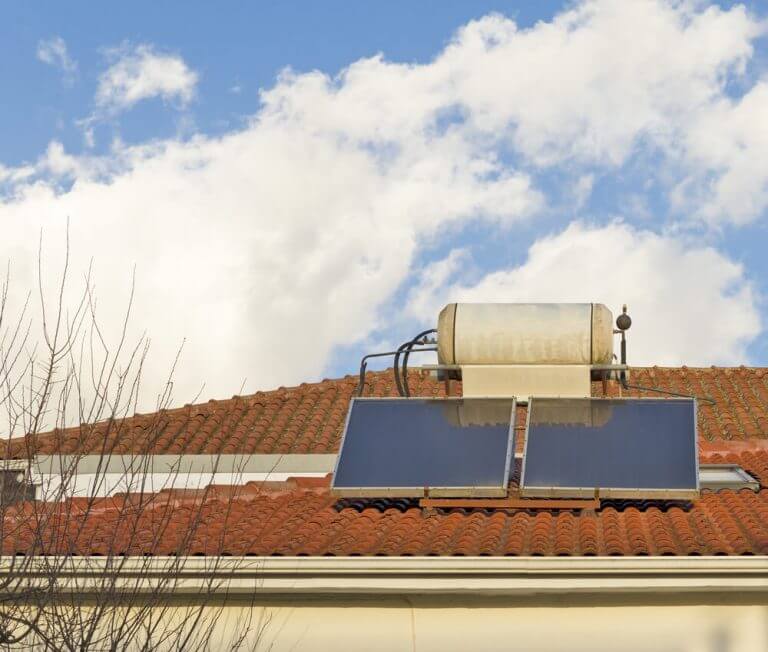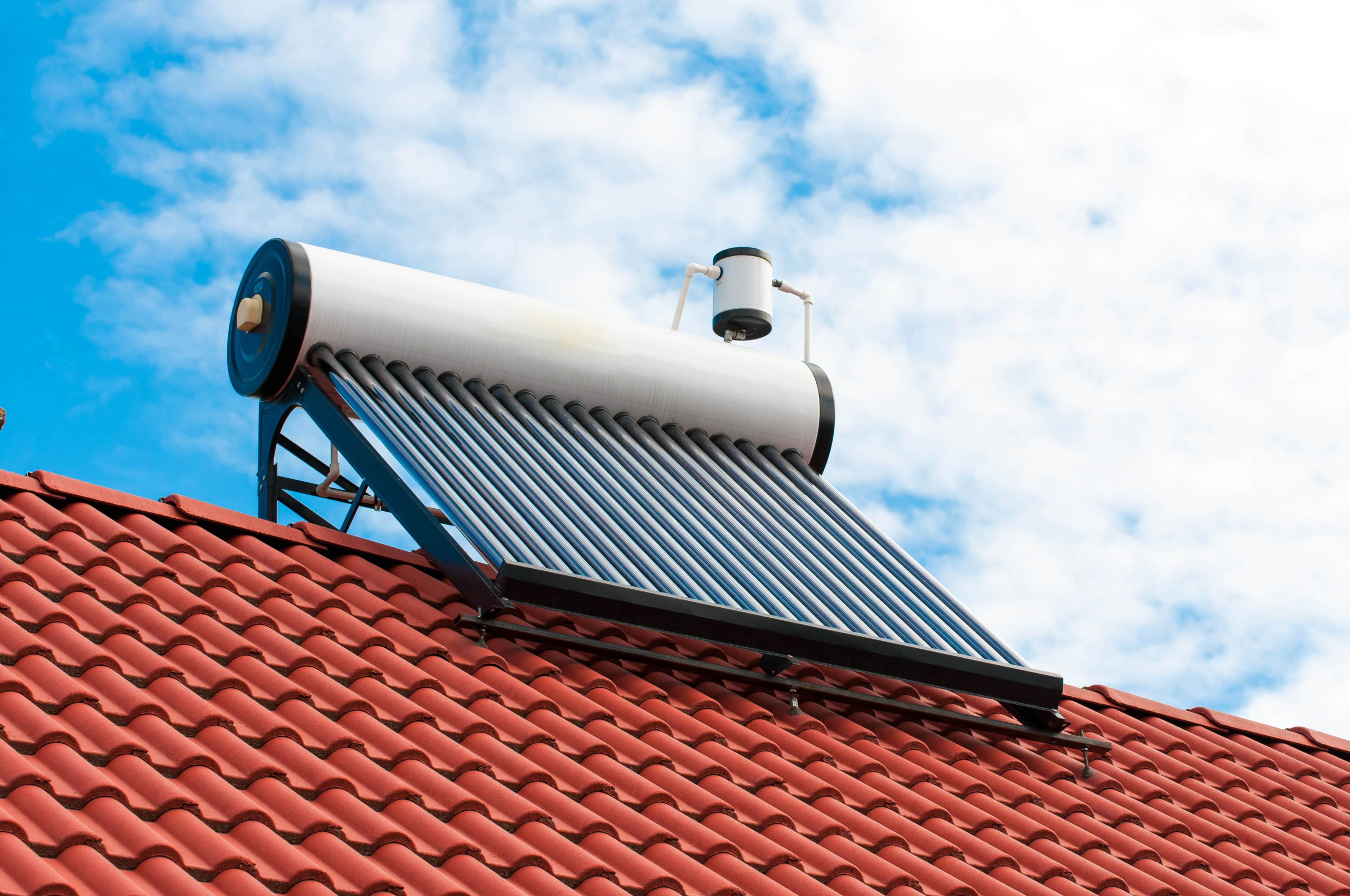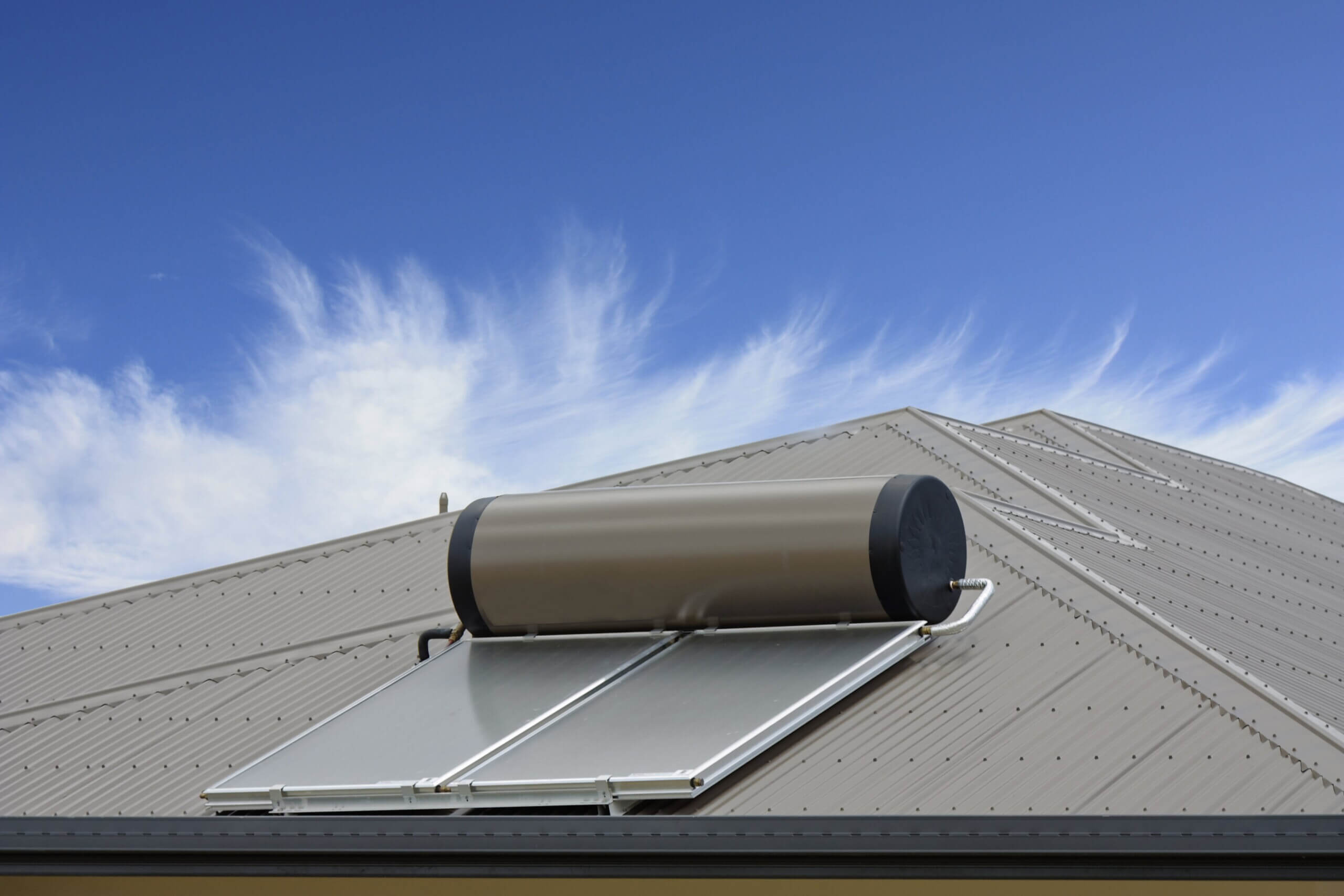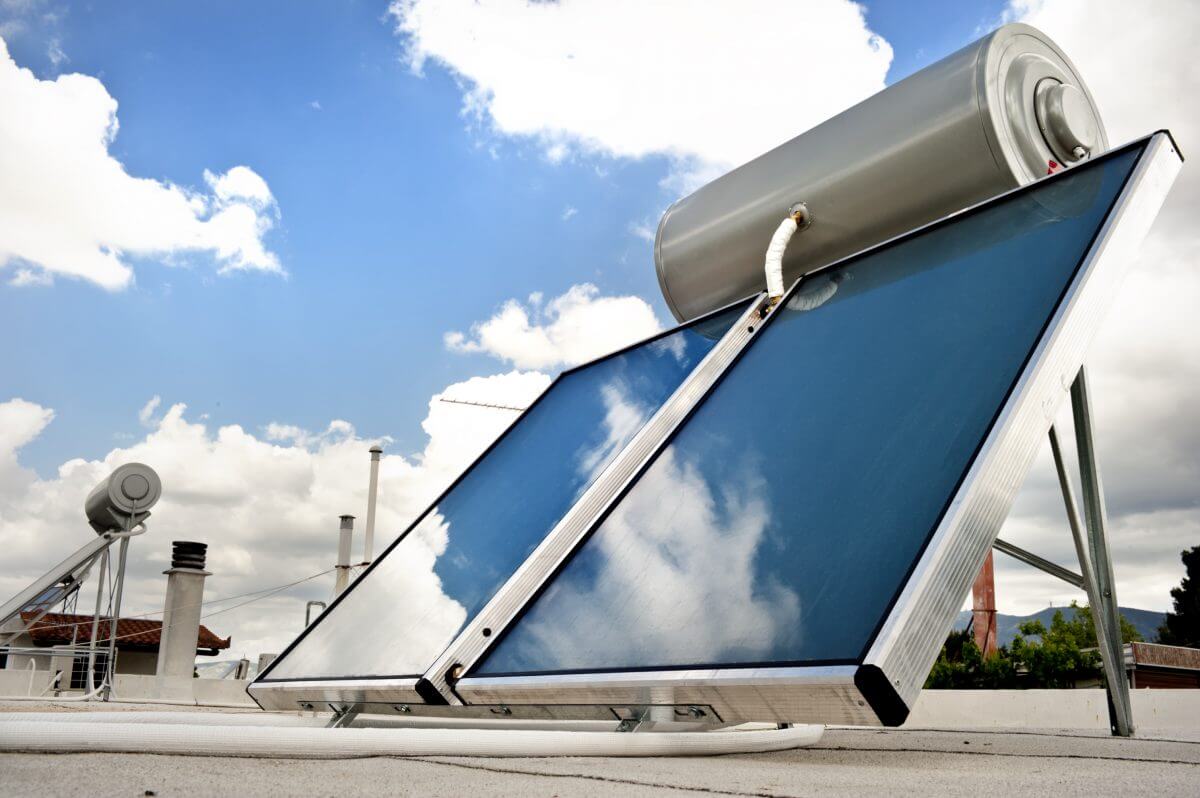Why Is My Solar Hot Water System Not Heating Properly?
It can be very frustrating if you don’t know why your solar hot water system isn’t heating properly. In this article, we go over some common problems that arise with solar hot water systems and what to do about them.
For more information, check out our guide on “Everything you need to know about solar hot water systems” or get in touch with the team at iBreeze.

Why is my solar water heater not heating?
If you’re getting lukewarm or cold water from your taps, use the list below to troubleshoot why your solar water heater is not heating.
Not enough sunlight
On cloudy days, less sunlight may mean less reliable heating from your solar hot water system. You may have to rely on your booster heating unit more often during these periods.
Booster not working
If you are using your booster system correctly and still only running lukewarm or cold water, it could be a problem with the booster.
- First, check that the booster element is switched on. Look for “Hot Water” or “Water Heater” on your power switchboard.
- Then check if there is a timer on the booster which is cutting it off when you need hot water.
- If you suspect the unit is receiving no power, it’s best to call a professional in to inspect the situation.
Solar panels are shaded
The solar collectors will be less effective if they are in the shade of a tree or if they are dirty.
- Clean the glass and trim back any foliage surrounding the solar panels to maximise sunlight.
- If the shading is permanent (for example if it’s caused by a building) you may need to relocate your solar collectors. Talk to iBreeze for a no-obligation solar hot water installation quote.
Thermostat setting is incorrect
Check that the thermostat is set at an appropriate temperature. Usually this is between 60 and 70 degrees celsius. If the thermostat setting is incorrect, you may need a qualified professional to adjust the settings for you.
System is too small for your household
If you are running out of hot water it could be because you are using more hot water than you expected or because the storage tank is too small for your household needs.
- Assess your household use of hot water. For example, consider having shorter hot showers and using the cold cycle on your washing machine.
- Ask a plumber to install a flow control valve to reduce water usage and adjust your hot water usage patterns to maximise periods of sunlight.
- If there’s still a problem, consider upgrading to a larger water heating system. Chat with a water heater expert from iBreeze for advice about what size system is right for you.
Temperature pressure relief valve problems
The temperature pressure relief valve helps your hot water system release excess temperature and pressure in a safe way.
It’s normal for the valve to let out a small amount of water during the water heating cycle. However, if you notice large amounts of water coming out of the valve it could indicate a blockage or pressure issue.
- Carefully lift the lever of the temperature pressure relief valve if it is accessible. This may dislodge a small blockage and solve the problem. If the lever is not accessible, you will need to have it looked at by a professional.
- A steady flow of water at night may indicate the mains pressure sometimes exceeds the pressure of the water heater. Installing a pressure limiting valve may solve the problem.
- If there is a heavy flow of hot water when the booster is switched on, it could be an indication that there is no over temperature protection system. You should switch the water heater off at the switchboard and arrange for repairs as soon as possible.
Leaks
If you notice water leaking on the roof or near the hot water tank on the ground, the most likely cause is the temperature pressure relief valve (see above).
Small amounts of water is normal as the system tries to cope with excess heat and pressure. However, large leaks should be attended to as soon as possible as they can be a sign of a larger problem.
Leaks may also be caused by damaged pipe fittings, burst pipes or loose nuts. Call a professional to inspect the problem and replace parts where necessary.
How long do solar water heaters last?
Modern solar water heaters typically last for over 10 years. Check the manufacturer’s warranty for a more specific estimate.
A number of factors can affect the lifespan of your system, including how often it is serviced, the water source used and the temperature and pressure of the water.
Maintenance tips for solar water heating
It’s important to perform regular maintenance on your system to preserve its life and improve performance.
- Keep the solar collectors clean.
- Trim any branches and foliage away from the collectors.
- Ensure your hot water pipes are insulated properly.
- Consider installing a water softener to prevent mineral build up.
- Monitor your system for leaks.
- Periodically check that the easing levers are working on the temperature pressure relief valve and the expansion control valve.
- Book your hot water system in for a professional service yearly or more often if you experience problems.
When should you get professional help?
It can be frustrating when you don’t know why your solar hot water system is not heating properly.
If you’ve tried the troubleshooting steps in this article and are still having problems with your solar water heating or water temperature, it’s time to get professional help.
For solar power repairs and maintenance in Perth and Mandurah, give the team at iBreeze a call.
For energy efficient, effective heating and cooling solutions all year round, reach out to our team of specialists. We’ll deliver the highest comfort to both your residential and commercial space, no matter the size or scale.
Sunday Closed
Monday 9:00am – 5:00pm
Tuesday 9:00am – 5:00pm
Wednesday 9:00am – 5:00pm
Thursday 9:00am – 5:00pm
Friday 9:00am – 5:00pm
Saturday Closed


